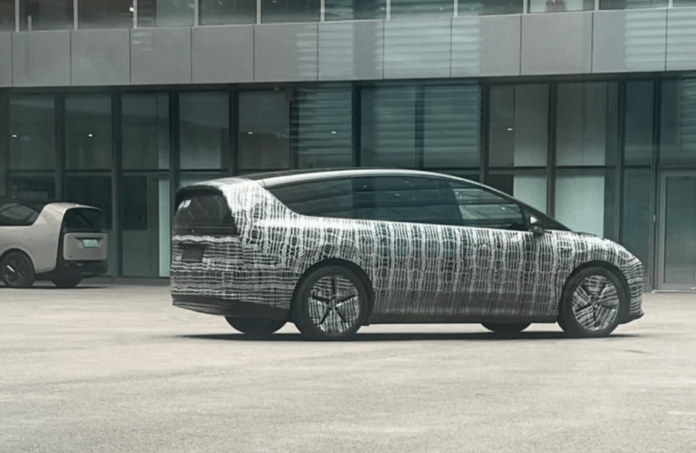Today, Li Auto released a picture of one of its M series all-electric SUVs. Ben Baum, senior design director of Li Auto, revealed the picture, which is believed to be of the new M8. Although it’s still a camouflaged picture, it gives us a much better idea of what the future SUV will look like than the previous spy shots.
Previous plans called for the release of four all-electric cars this year and one extended-range SUV. One of the all-electric cars is the Mega which has already been released, and the others were three all-electric SUV models, believed to be called M9, M8, and M7. Subsequently, the M series of SUVs has been postponed until next year.
M8 or not, we can see from the picture that it is not a typically designed SUV. Positioning wise, the car will be marketed similarly to the Tesla Model X, which targets families. From the official shot, we can see that there is a definite influence from the Li Mega (see specs). The roof has a slip-back style, and the tail is unique, but overall, the car has a simple and integrated look about it. We can also see that the new car has lost some of the ungainly bulk of the Mega and so should be more pleasing to the eye.
As previously reported, one of the reasons for the delay in rolling out the M series has been the supercharging network. As of July 14, Li Auto has 635 supercharging stations in operation and the plans call for over 2000 by the end of the year. Like the Mega, the new M series will have 5C charging, meaning that they can charge at up to five times the speed of other EVs.



Earlier this year, a video showed a Li Mega charging from 10 to 80% in 10 minutes and 36 seconds. However, for cars to take advantage of such fast charging speeds, they need access to 5C chargers, and currently, there simply aren’t enough around. One of Li Auto’s key aims from the new supercharging network is to give customers a better charging experience. It provides 5C chargers that are strategically placed across the country, including on highway routes. Therefore, Li wants to delay the launch of the new SUVs until the supercharger roll-out is complete. Currently, the 635 charging stations have a total of 2,848 chargers spread across 26 provinces and 151 cities. They also cover four highway routes. Superchargers are viewed by Li Auto in a similar way to the Tesla Superchargers.
The company has also given another reason for the delay: it needs multiple models to occupy space. This leads to the question of whether Li Auto is thinking of separating the sales channels of the EREV and all-electric models. One other likely reason, but one that Li Auto will admit, is the poor sales figures of the Mega.
Source: Fast Technology


